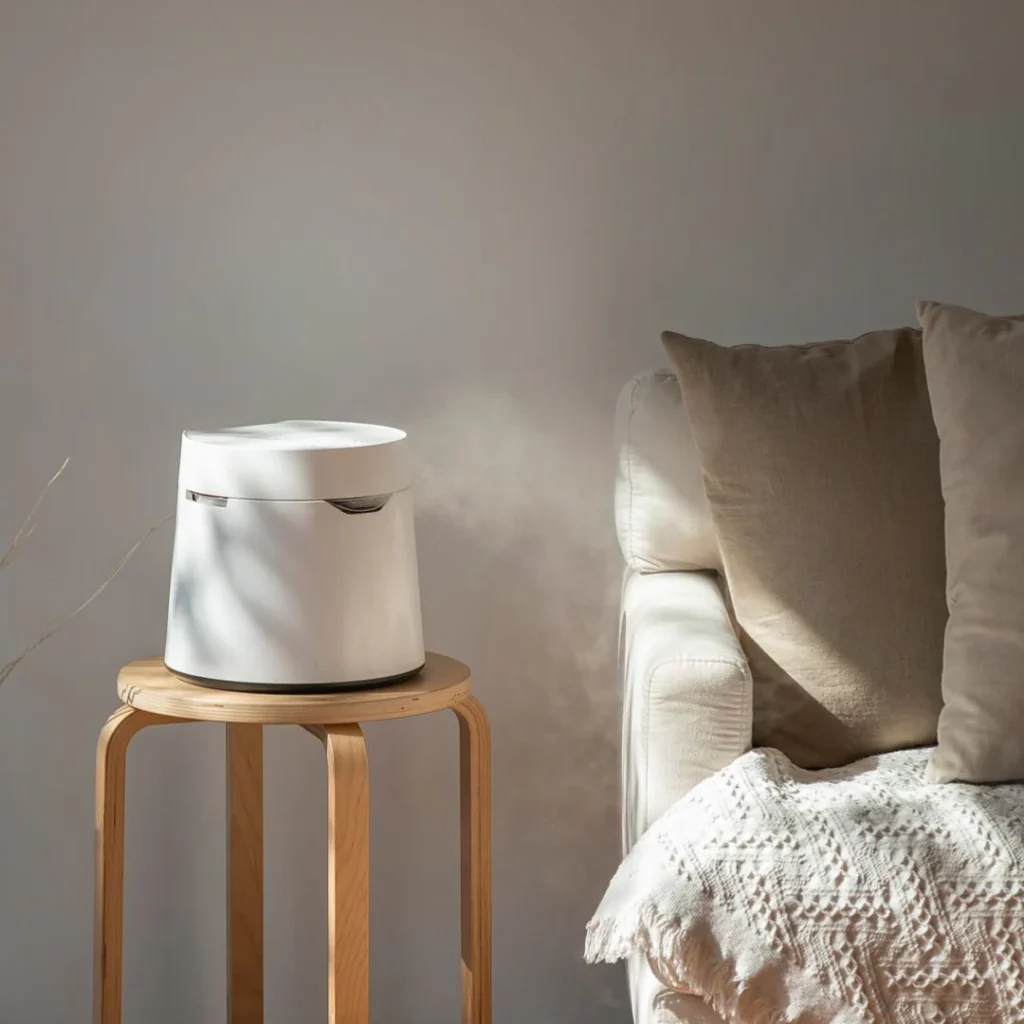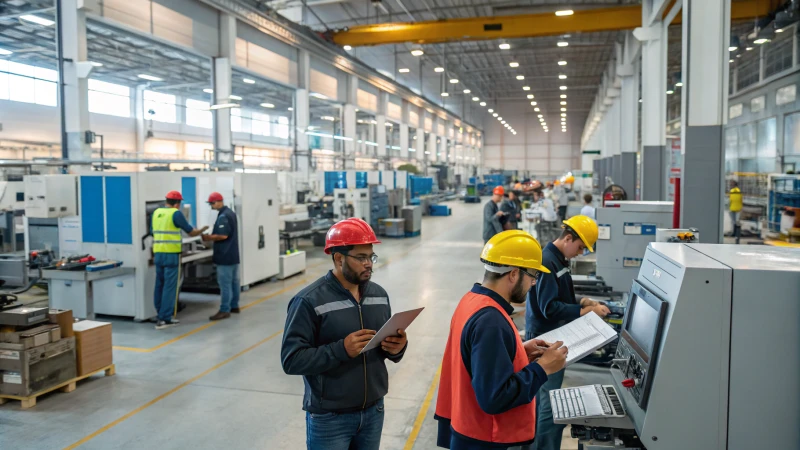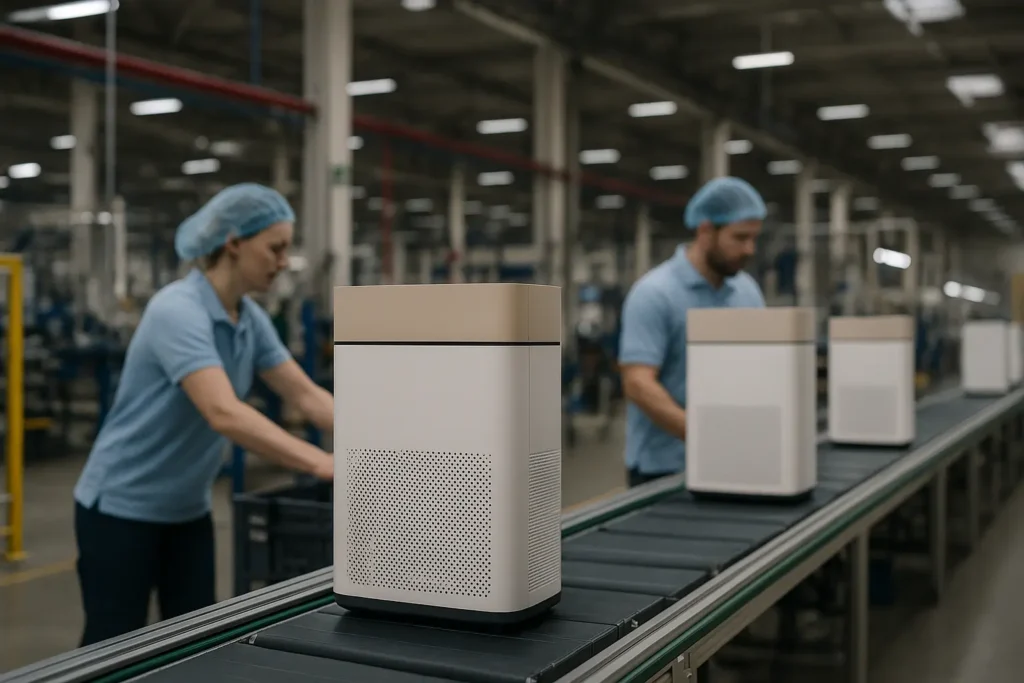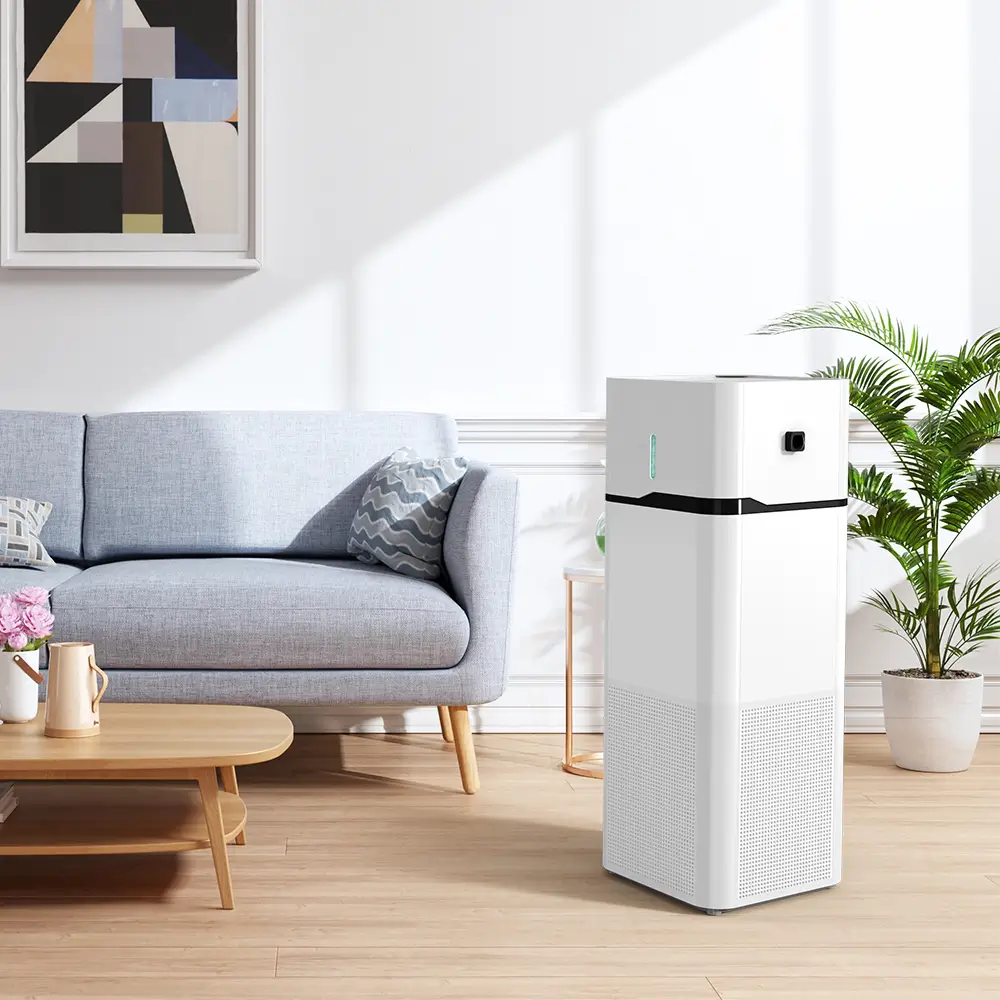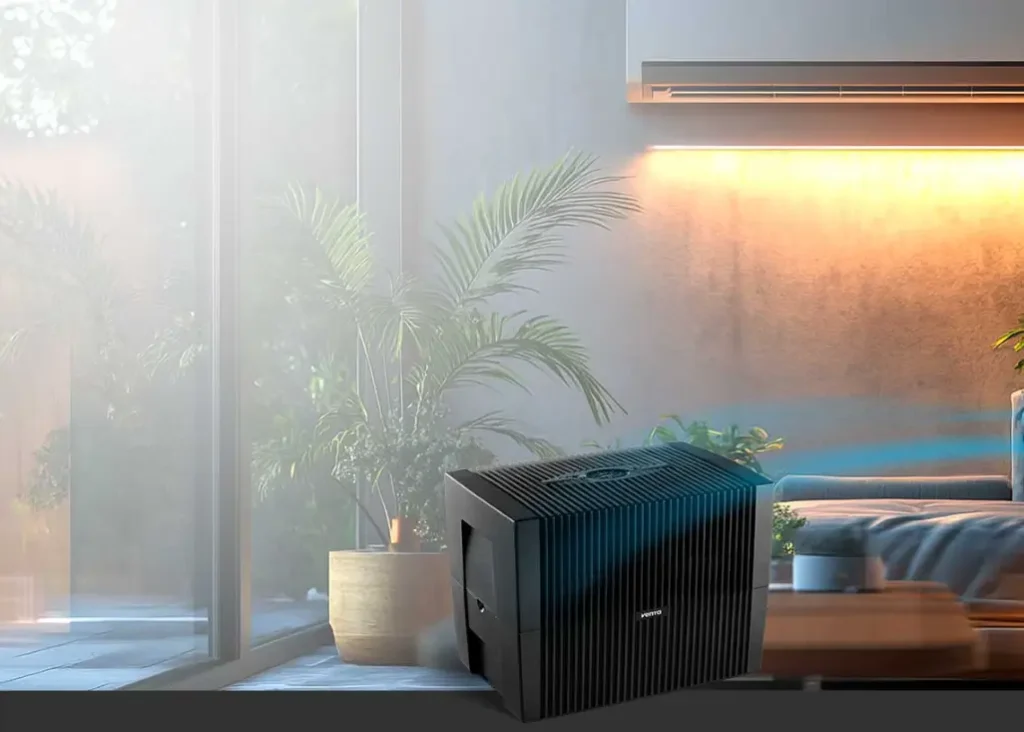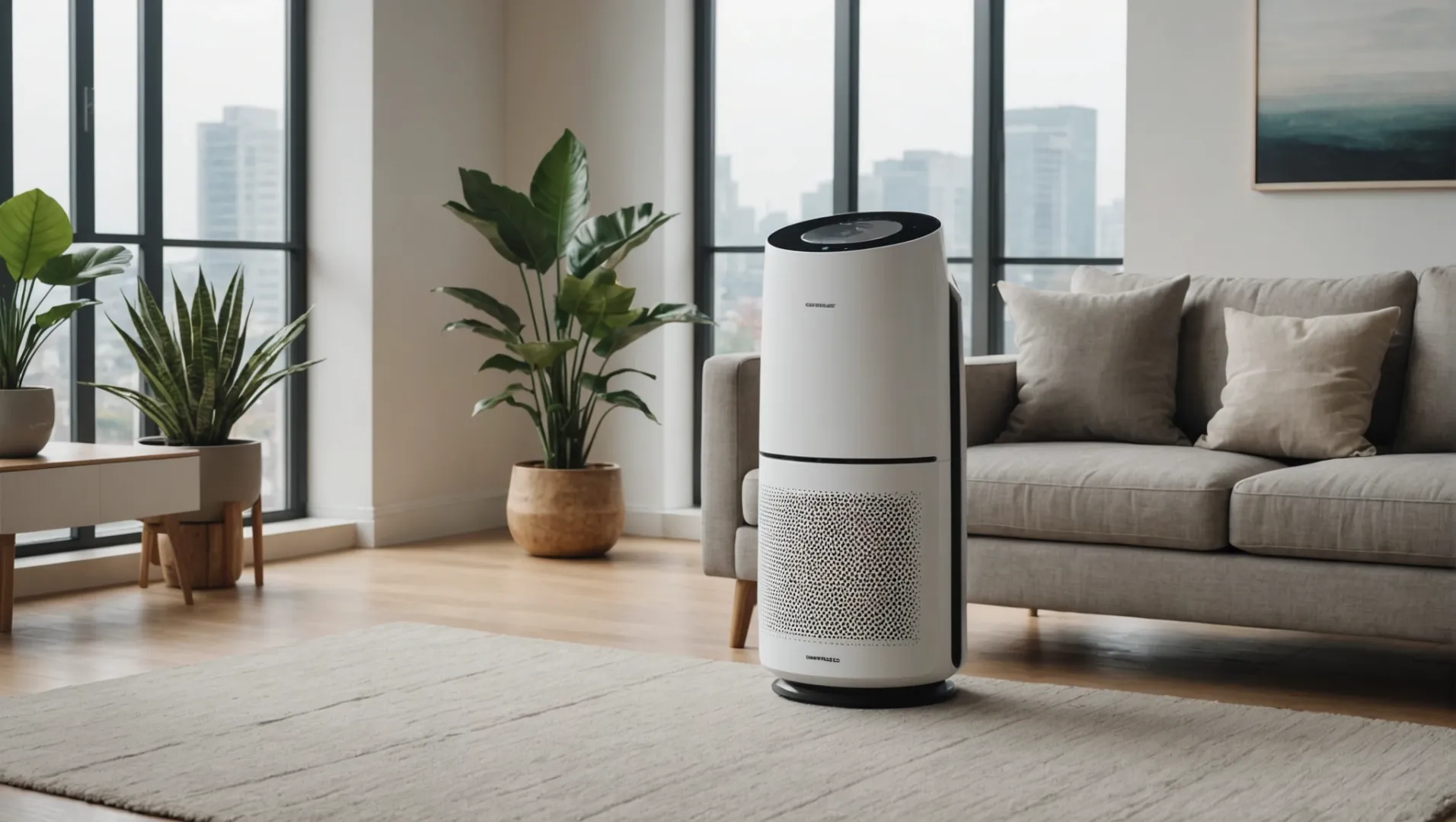
경쟁이 치열한 오늘날의 공기청정기 시장에서 돋보이기 위해서는 혁신이 핵심입니다.
경쟁이 치열한 시장에서 공기청정기 제품을 차별화하려면 고유한 기능, 우수한 성능, 타겟 마케팅 전략에 집중하세요. 고급 여과 시스템을 구현하고, 틈새 고객층을 공략하고, 고유한 판매 포인트를 활용하면 제품의 매력과 시장 입지를 크게 향상시킬 수 있습니다.
기본 사항을 이해하는 것도 중요하지만, 소비자 선호도와 성공적인 사례 연구를 자세히 살펴보면 귀중한 인사이트를 얻을 수 있습니다. 구체적인 전략을 통해 공기청정기 제품을 경쟁 제품보다 우위에 두는 방법을 알아보세요.
고급 여과 시스템은 공기청정기를 차별화할 수 있습니다.True
HEPA13 또는 활성탄과 같은 맞춤형 필터는 특정 요구 사항을 충족하여 매력도를 높입니다.
고유한 기능으로 어떻게 공기청정기의 경쟁력을 높일 수 있을까요?
분주한 공기청정기 시장에서 고유한 기능으로 제품을 차별화할 수 있습니다.
고급 필터링, 저소음 작동, 에너지 효율성과 같은 고유한 기능을 통해 공기청정기의 경쟁력을 높일 수 있습니다. 이러한 기능은 성능을 향상시킬 뿐만 아니라 특정 고객의 요구를 충족시켜 포화 상태인 시장에서 더욱 매력적인 제품이 될 수 있습니다.
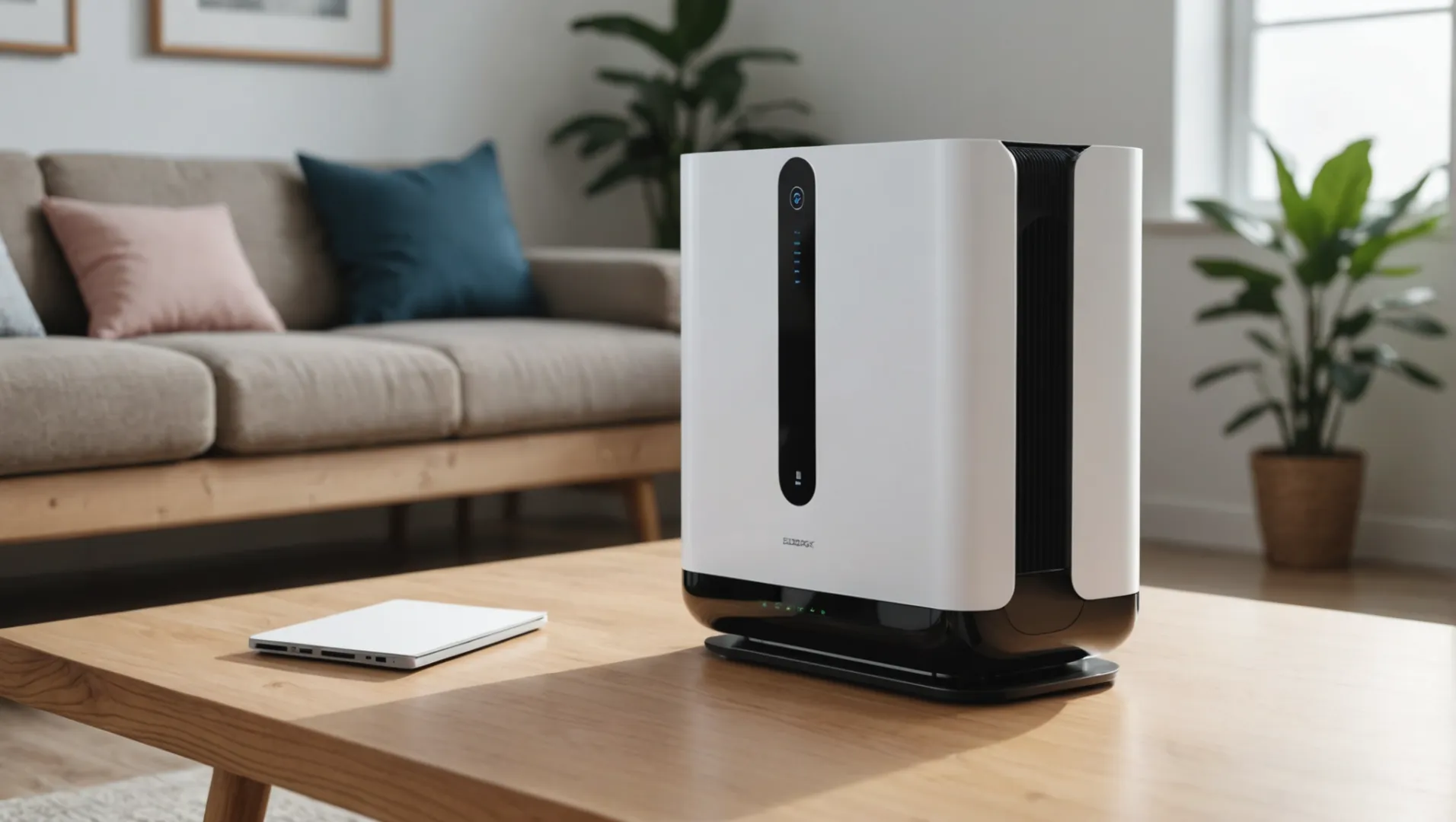
고급 필터링 시스템
공기 청정기를 구별하는 한 가지 방법은 다음과 같습니다. 맞춤형 필터링 시스템1. 미세먼지 및 알레르기 유발 물질을 위한 HEPA13 또는 활성탄 필터와 같은 특수 필터를 제공합니다. VOC 반려동물 냄새 등 다양한 고객의 니즈를 충족합니다. 이를 통해 성능을 향상시킬 뿐만 아니라 충성도 높은 고객층을 구축할 수 있습니다.
에너지 효율 및 소음 감소
AC 팬 대신 DC 팬 시스템을 사용하면 전력 소비와 소음 수준을 크게 낮출 수 있습니다. 이 기능은 환경을 중시하고 생활 공간의 소리에 민감한 소비자에게 점점 더 중요해지고 있습니다.
틈새 시장 공략
특정 고객 세그먼트를 파악하고 타겟팅하면 상당한 경쟁 우위를 확보할 수 있습니다. 반려동물 소유자, 유아를 동반한 부모 또는 잦은 여행객을 위해 특별히 고안된 제품을 개발하는 것을 고려해 보세요. 이러한 그룹은 특히 공기 질에 민감하며 특정 요구 사항을 충족하는 제품에 투자할 가능성이 높습니다.
기술 및 연결성 활용
공기청정기에 스마트 기술을 접목하면 더욱 매력적인 제품이 될 수 있습니다. 앱 제어, 실시간 공기질 모니터링, 홈 자동화 시스템과의 통합과 같은 기능은 기술에 정통한 소비자들에게 어필할 수 있습니다.
현지화된 브랜드 구축
가격으로만 경쟁하기보다는 현지화된 브랜드 스토리에 집중하는 것이 유리할 수 있습니다. Shopify와 같은 플랫폼에서 소셜 미디어 및 인플루언서 마케팅을 통해 고객과 소통하면 단순한 제품 기능 이상의 가치를 더해 소비자와 정서적으로 공감할 수 있는 고유한 브랜드 아이덴티티를 구축하는 데 도움이 됩니다.
고급 필터링으로 공기 청정기 성능을 향상시킵니다.True
고급 여과 시스템은 더 많은 오염 물질을 제거하여 공기질을 개선합니다.
DC 팬은 공기청정기 소음 수준을 높입니다.False
DC 팬은 AC 팬보다 조용하기 때문에 공기청정기의 소음 수준을 줄여줍니다.
공기청정기를 차별화하는 데 성능은 어떤 역할을 하나요?
수많은 공기청정기의 홍수 속에서 성능은 제품을 차별화할 수 있는 핵심 차별화 요소입니다.
공기청정기의 성능은 공기 흐름 효율, 소음 수준, 에너지 소비량을 통해 제품을 차별화합니다. 고성능 모델은 일반적으로 고급 팬 시스템과 맞춤형 필터를 갖추고 있으며, 알레르기나 애완동물 냄새와 같은 특정 요구 사항을 충족하여 틈새 시장에 어필하고 소비자 만족도를 높입니다.
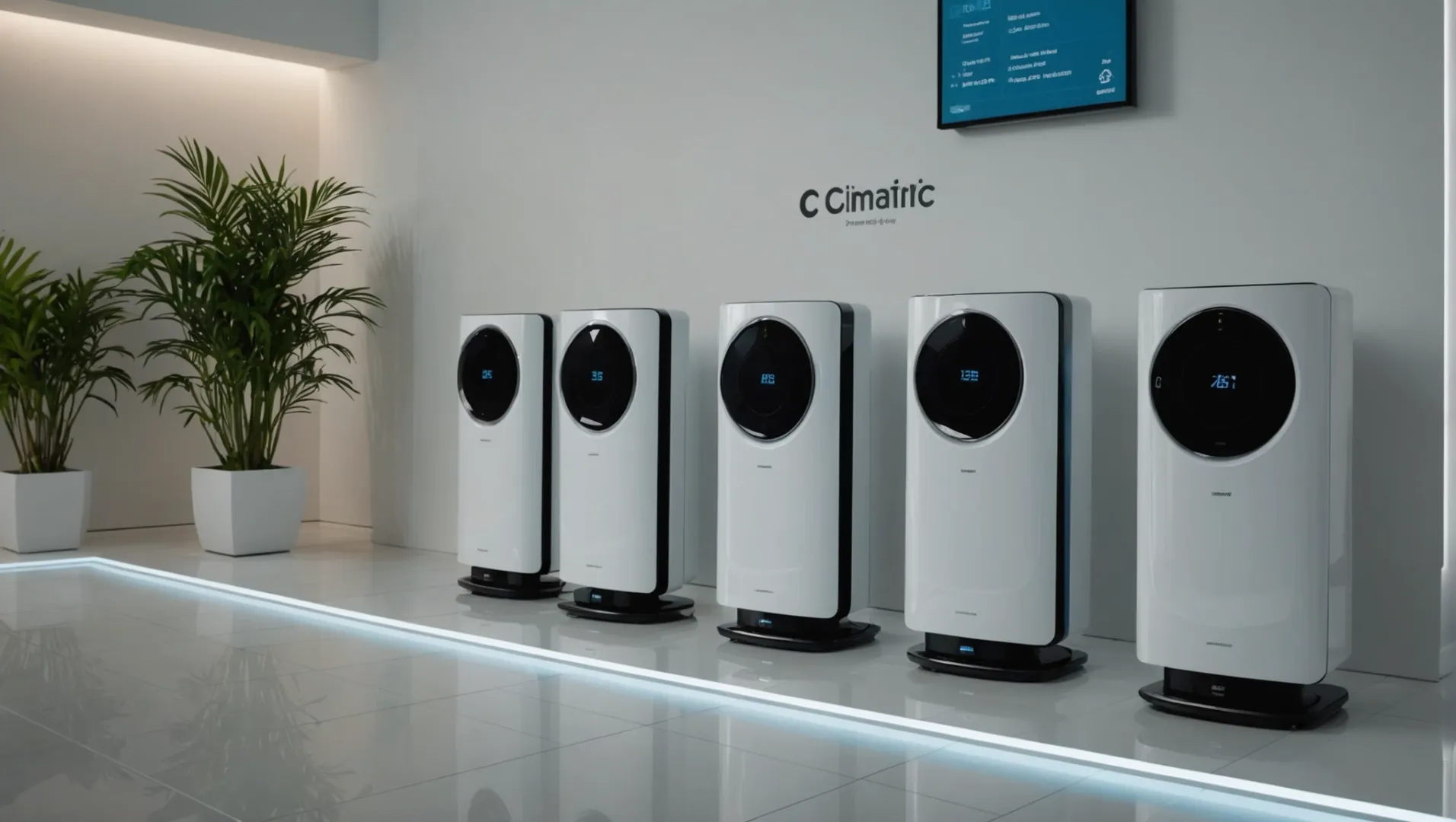
공기 흐름 효율성 이해
공기 흐름 효율은 공기청정기의 성능을 평가하는 데 중요한 지표입니다. 높은 모델 CFM (분당 입방 피트 수) 등급이 400CFM을 초과하면 더 빠르고 효과적인 공기 청정을 보장합니다. 이는 넓은 공간이나 높은 오염도를 다루는 소비자에게 특히 중요합니다. A 높은 CFM 평가2 는 종종 구매자에게 결정적인 요소가 될 수 있습니다.
노이즈 레벨의 중요성
특히 침실이나 사무실에서 공기청정기를 사용하는 소비자들에게 소음은 큰 걱정거리가 될 수 있습니다. AC 팬 시스템 대신 DC 팬 시스템을 사용하는 공기청정기는 더 조용하게 작동하는 경향이 있습니다. 이러한 저소음 모델은 주거 및 업무 환경에서 매우 중요한 평화로운 환경에 대한 수요 증가에 부응합니다.
에너지 소비 고려 사항
환경에 대한 의식이 높아지면서 에너지 효율은 많은 소비자들에게 우선 순위가 되었습니다. 전력을 적게 소비하는 공기청정기는 전기 요금을 절약할 수 있을 뿐만 아니라 환경을 생각하는 구매자에게 어필할 수 있습니다. 마케팅에서 이러한 효율성을 강조하면 지속 가능한 솔루션을 찾는 더 많은 잠재 고객을 유치할 수 있습니다.
맞춤형 여과 시스템
공기청정기의 성능은 공기 흐름과 소음뿐 아니라 특정 오염 물질을 얼마나 효과적으로 처리할 수 있는지도 중요합니다. 미세먼지 및 알레르기 유발 물질을 위한 HEPA 13 또는 활성탄과 같은 맞춤형 필터를 제공합니다. VOC (휘발성 유기 화합물) 및 반려동물 냄새를 제거하여 틈새 시장을 공략할 수 있습니다. 반려동물을 키우거나 알레르기가 있거나 오염이 심한 지역에 거주하는 등 특정 니즈에 맞춘 솔루션에 대한 고객의 관심이 점점 더 높아지고 있습니다.
다양한 시장에 대응하기
상업용 사용자나 주거용 구매자와 같은 다양한 고객층의 다양한 요구 사항을 이해함으로써 공기청정기 회사는 제품을 더욱 차별화할 수 있습니다. 예를 들어 상업용으로 설계된 기기는 다른 기능보다 내구성과 커버리지 면적을 우선시하는 반면, 주거용 기기는 미관과 사용 편의성에 초점을 맞출 수 있습니다. 소셜 미디어와 같은 플랫폼에서 타겟 마케팅 전략을 활용하면 이러한 뚜렷한 고객층에 효과적으로 도달하는 데 도움이 됩니다.
DC 팬이 장착된 공기청정기는 AC 팬보다 조용합니다.True
DC 팬은 더 조용하게 작동하여 침실과 사무실에 적합합니다.
공기청정기의 높은 CFM 등급은 성능이 낮다는 것을 의미합니다.False
높은 CFM 등급은 더 빠르고 효과적인 공기 청정을 보장합니다.
맞춤형 필터링 시스템은 어떻게 다양한 고객층을 유치할 수 있을까요?
맞춤형 필터 시스템은 공기청정기를 다양한 고객의 필수품으로 탈바꿈시킬 수 있습니다.
맞춤형 필터 시스템은 특정 공기질 요구 사항을 해결함으로써 다양한 고객층을 끌어들입니다. 알레르기, 애완동물 냄새, 산업용으로 특화된 필터와 같은 맞춤형 솔루션을 제공함으로써 기업은 시장 범위를 넓히고 강력한 고객 관계를 구축할 수 있습니다.
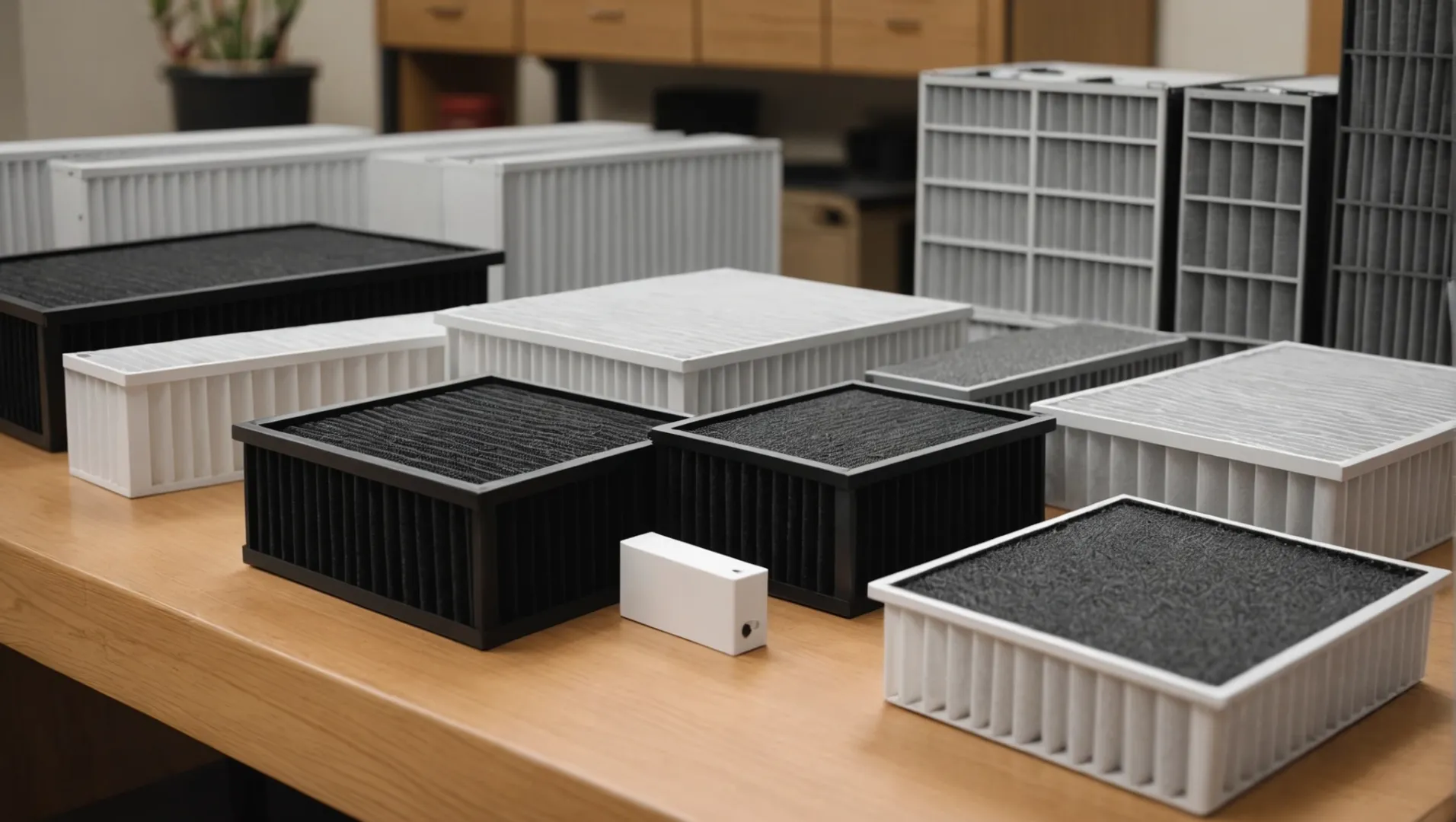
다양한 고객 니즈 이해
공기 정화의 영역에서는 한 가지 사이즈가 모든 사람에게 적합한 경우는 거의 없습니다. 고객은 알레르기 환자부터 산업 사용자까지 다양하며 각각 고유한 요구 사항을 가지고 있습니다. 전문 필터3 는 이러한 다양한 요구 사항을 충족하는 데 필수적입니다. 예를 들어 HEPA 14 필터 는 의료 시설에 필수적인 박테리아와 바이러스에 대한 탁월한 보호 기능을 제공합니다.
맞춤형 필터링 솔루션 만들기
맞춤형 필터링 시스템을 개발하려면 다양한 시나리오에 대한 깊은 이해가 필요합니다. 반려동물 소유자의 경우 활성탄 필터 는 냄새를 효과적으로 중화시키고 휘발성 유기 화합물(VOC). 한편, 자동차 운전자는 좁은 공간에서 효율적으로 작동하도록 설계된 소형 시스템의 이점을 누릴 수 있습니다.
| 고객 세그먼트 | 권장 필터 | 혜택 |
|---|---|---|
| 알레르기 환자 | HEPA 13 | 미세먼지 및 알레르기 유발 물질 포착 |
| 헬스케어 | HEPA 14 | 박테리아 및 바이러스 필터링 |
| 반려동물 소유자 | 활성탄 | 냄새를 제거하고 VOC |
| 산업용 | 마이크로비아 필터 | 곰팡이 포자 제거 |
마케팅에서 감성적 가치 활용하기
공기청정기를 차별화하는 것은 단순히 기술 사양에만 국한되지 않습니다. 제품에 대한 내러티브를 구축하면 감성적 가치를 높일 수 있습니다. 브랜딩의 스토리텔링4 소셜 미디어를 통해 지속 가능성 측면을 강조함으로써 친환경적인 사용자와 같은 새로운 세그먼트를 끌어들일 수 있습니다.
새로운 마켓플레이스로 확장
Amazon과 같은 대형 플랫폼 내에서 가격 경쟁에만 집중하는 대신 Shopify 스토어의 브랜드 스토리를 개발하는 데 집중하세요. 인플루언서 마케팅에 참여하여 아기의 공기 질에 관심이 많은 젊은 부모와 같은 틈새 고객층에게 다가갈 수 있습니다.
기술 혁신 수용
기존 AC 옵션 대신 DC 팬 시스템을 구현하면 전력 소비와 소음 수준을 줄임으로써 친환경적인 소비자에게 어필할 수 있습니다. 이러한 혁신은 성능을 향상시킬 뿐만 아니라 고객층을 넓혀 지속 가능성과 효율성을 우선시하는 사람들에게 어필할 수 있습니다.
HEPA 14 필터는 의료 시설에서 매우 중요합니다.True
HEPA 14 필터는 박테리아와 바이러스로부터 탁월한 보호 기능을 제공합니다.
활성탄 필터는 반려동물 냄새에는 효과적이지 않습니다.False
활성탄 필터는 반려동물 냄새와 VOC를 효과적으로 중화합니다.
공기청정기 차별화를 위해 타겟 마케팅이 중요한 이유는 무엇인가요?
포화 상태인 시장에서는 적절한 잠재고객에게 도달하는 것이 그 어느 때보다 중요합니다.
타겟 마케팅은 브랜드가 특정 고객의 니즈와 연결하고, 브랜드 충성도를 높이고, 제품 가시성을 높이는 데 도움이 되므로 공기청정기 차별화를 위해 필수적입니다. 기업은 고유한 소비자 세그먼트에 맞게 마케팅 전략을 맞춤화함으로써 경쟁이 치열한 시장에서 효과적으로 제품을 차별화할 수 있습니다.
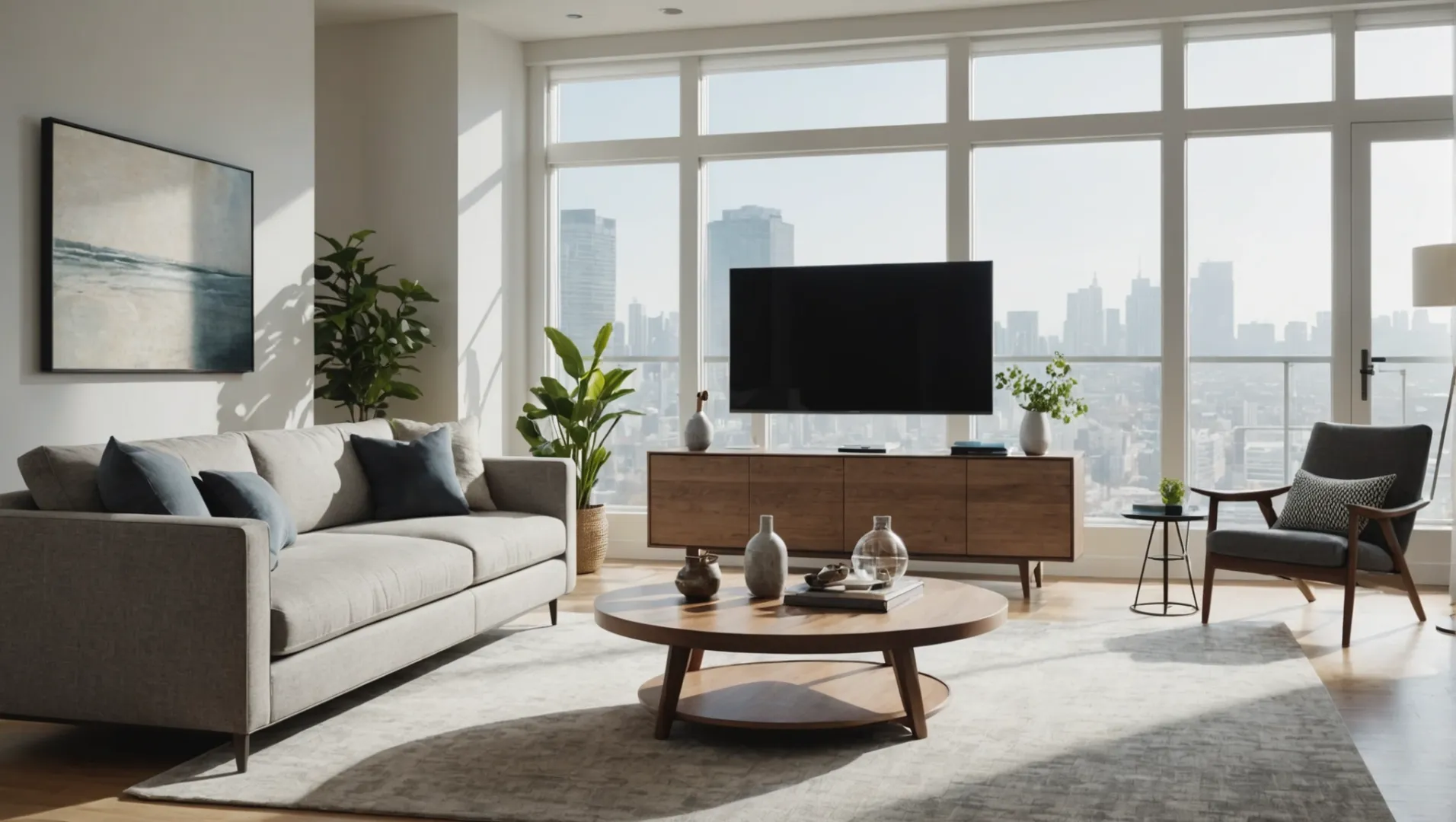
타겟 마케팅의 역할 이해
공기청정기의 영역에서 모든 고객이 똑같지는 않습니다. 알레르기 환자부터 반려동물 소유자까지 각 그룹은 각기 다른 요구 사항과 우선순위를 가지고 있습니다. 여기에서 타겟 마케팅5 가 게임 체인저가 됩니다. 광범위한 접근 방식 대신 특정 소비자 세그먼트에 초점을 맞추면 브랜드는 메시지를 맞춤화하고 가장 공감을 불러일으키는 기능을 강조할 수 있습니다.
주요 소비자 세그먼트 파악
타겟팅 마케팅을 효과적으로 실행하려면 고객층을 파악하고 이해하는 것이 중요합니다. 몇 가지 잠재적인 세그먼트는 다음과 같습니다:
- 건강에 관심이 많은 가족: 알레르기 유발 물질과 박테리아를 제거하는 고성능 여과 시스템을 갖춘 공기청정기를 강조하세요.
- 반려동물 소유자: 반려동물의 냄새와 비듬을 제거하는 활성탄 필터가 있는 제품을 강조 표시합니다.
- 도시 거주자: 좁은 공간을 위한 강력한 정화 기능을 갖춘 컴팩트한 디자인에 집중하세요.
디지털 플랫폼 활용
디지털 플랫폼은 정밀한 타겟팅을 위한 최고의 기회를 제공합니다. 예를 들어, 소셜 미디어 채널을 통해 브랜드는 맞춤형 광고와 인플루언서 파트너십을 통해 특정 인구 통계와 직접 소통할 수 있습니다. 공기청정기 회사는 틈새 관심사에 직접적으로 부합하는 콘텐츠를 제작함으로써 Instagram이나 Facebook과 같은 플랫폼에서 인지도를 높일 수 있습니다.
또한 데이터 분석을 활용하면 타겟팅 노력을 강화할 수 있습니다. 구매 패턴과 소비자 행동을 이해함으로써 브랜드는 전략을 세분화하고 마케팅 ROI를 개선할 수 있습니다.
감성 브랜딩 및 스토리텔링
기술적 특징 외에도 감성적인 브랜딩은 제품 차별화에 중요한 역할을 합니다. 타겟 고객의 가치와 라이프스타일에 부합하는 매력적인 브랜드 스토리를 구축하면 더 깊은 유대감을 형성할 수 있습니다. 예를 들어, 깨끗하고 건강한 생활의 옹호자로 브랜드를 포지셔닝하면 환경에 민감한 소비자들에게 큰 반향을 일으킬 수 있습니다.
블로그 게시물, 동영상 또는 소셜 미디어 캠페인을 통해 진정성 있는 스토리를 전달함으로써 기업은 고객 간의 공동체 의식과 충성도를 높일 수 있습니다.
타겟 마케팅이 매출에 미치는 영향
잘 실행된 타겟 마케팅 전략은 차별화뿐만 아니라 판매로 이어집니다. 고객이 자신의 특정 니즈에 맞는 제품을 보게 되면 구매로 이어질 확률이 높아집니다. 또한 만족한 고객은 종종 브랜드 옹호자가 되어 커뮤니티 내에서 소문을 퍼뜨리고 마케팅 활동의 범위를 넓힐 수 있습니다.
궁극적으로 타겟 마케팅은 소비자와 의미 있는 관계를 형성하고 전반적인 고객 경험을 향상시킴으로써 공기청정기 브랜드가 혼잡한 시장에서 돋보일 수 있도록 합니다.
타겟 마케팅으로 공기청정기 판매를 촉진합니다.True
타겟 마케팅은 특정 니즈를 해결함으로써 구매 가능성을 높입니다.
모든 공기청정기 고객은 비슷한 요구 사항을 가지고 있습니다.False
소비자 세그먼트마다 고유한 니즈가 있으므로 맞춤형 마케팅이 필요합니다.
결론
고유한 기능과 타겟팅 전략을 구현하면 경쟁이 치열한 시장에서 공기청정기의 위상을 높일 수 있습니다. 지속적인 성공을 위해 소비자 선호도와 시장 트렌드에 집중하세요.
-
맞춤형 필터링으로 공기 청정기 효과를 향상시키는 방법을 알아보세요: 초미세 입자 포집: 꽃가루, 집먼지 진드기, 곰팡이 포자 등 아주 작은 알레르기 유발 입자까지 포집하도록 설계되었습니다. 멀티 ... ↩
-
CFM과 공기 정화 효율에 미치는 영향에 대해 알아보세요: CFM은 공기청정기의 공기 흐름 용량을 나타내며, 1분 동안 처리할 수 있는 공기량을 나타냅니다. 일반적으로 CFM이 높을수록 ... ↩
-
특정 필터가 다양한 공기질 요구 사항을 충족하는 방법을 살펴보세요: 당사의 교체용 공기청정기 필터는 담배 연기, 애완동물 냄새, 요리 냄새 및 가정용 알레르기 유발 물질을 제거하도록 설계된 진정한 HEPA 필터입니다. ↩
-
효과적인 스토리텔링이 어떻게 제품의 매력을 향상시키는지 알아보세요: 쿠린의 이야기는 단순히 공기청정기에 관한 것이 아니라 브랜드가 어떻게 감성적으로 연결되고, 대담하게 혁신하며, 지속 가능한 성공을 거둘 수 있는지에 대한 이야기입니다. ↩
-
타겟 마케팅으로 제품 차별화를 강화하는 방법을 알아보세요: 차별화 마케팅은 생수와 같이 경쟁사와 크게 다르지 않은 제품일 때 기업이 눈에 띄는 데 도움이 될 수 있습니다. 그 ... ↩



